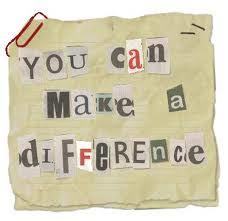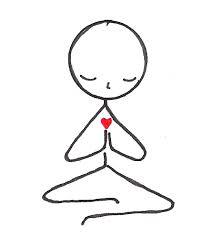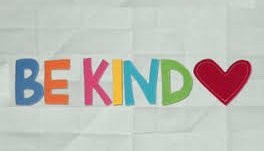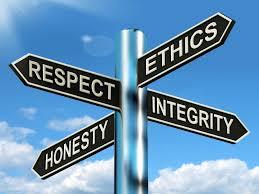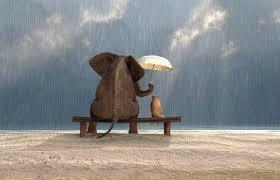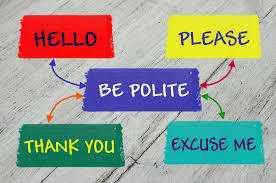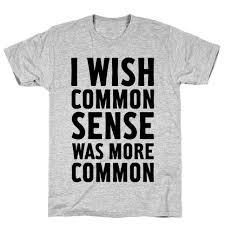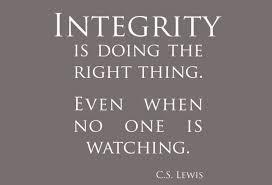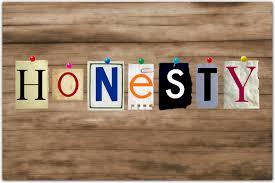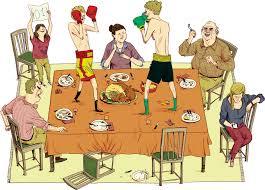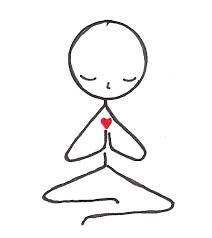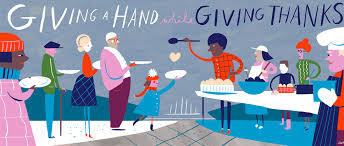Marcia Sirota's Blog, page 26
December 26, 2018
Seven Tips for Making a Positive Contribution in 2019
The New Year is almost here. It’s been a tumultuous time in local and world politics; scientists are predicting dire things for our environment, and many of us are feeling overwhelmed by all the bad news.
We’re feeling somewhat helpless and perhaps even a bit hopeless about the future. We don’t know what to do to make things better for ourselves, our families, our community and our planet.
Not that I’m the expert in all things, but I have a few thoughts about how we can be more empowered in 2019 to create a better life for ourselves and make a positive contribution in the coming year to our loved ones and to the world.
Here’s my list of the seven things we can do right now to create a better 2019.
1. Consider the environment. This has both global and selfish motivations. When we consider the environment in our day-to-day choices, we’re able to take the kinds of actions that will turn things around for the better. On a selfish basis, when we help our planet we create a safer, healthier world for our children and for all the generations to come.
2. Slow down and breathe. By this, I mean that we should be more mindful. So much of what we do on a moment-to-moment basis is reactive. We rarely stop to consider how we’re feeling, what we need, or what might be the best course of action right now. When we slow down and breathe we have a chance to think things through and make conscious, deliberate decisions. This makes us much more competent and effective in our personal and professional lives.
3. Be kind. Again, this is a two-sided act; both selfish and selfless. When we’re kind to others we do a lot of good in the world and people want to pay it forward, so the kindness multiplies. On a selfish level being kind, caring and generous will make us happier and give us a greater sense of belonging, as numerous studies have proven. The more altruistic we are, the more joyful, peaceful and connected we feel.
4. Think Big Picture. We do so many things for immediate gratification without thinking of the long-term effects of these actions. By the same token, we avoid so many things because of the possibility of momentary discomfort, never thinking about the long-term effects of this avoidance. When we think Big Picture, we’re able to make the kinds of choices that bring ourselves and those around us the meaningful, long-term benefits we all deserve.
5. Unplug. More and more studies are coming out and saying how important it is to do more in-the-world activities, as opposed to strictly online ones. We’re seeing the benefits of more in-person interactions, as opposed to solely online ones, as well. More and more people are going analog with objects like record players, print books, typewriters and instant cameras. We’re recognizing how pleasurable and healthful it is to engage with real objects and real people.
6. Get outside. Multiple studies have shown that it’s tremendously beneficial to spend time in nature. It’s good for body, mind and soul to walk in the woods or sleep under the stars. Even if it’s just going to the corner park, being around the flowers and the trees and looking up into the sky immediately calms us and renews our spirit. It also helps to remind us that we live in the natural world and helps to focus our attention on matters of conservation.
7. Become a feminist. We finally need to see the term “feminist,” as a good word. Feminists have never been man-haters and we’ve never wanted more than our fair and equal share. Women are one half of the population but we’re still treated like inferiors. We’re objectified and harassed in our personal and professional lives. We have fewer rights; we’re certainly not listened to when we speak out about abuses, and we’re paid far less than our male counterparts in almost every line of work. If everyone, male and female, were to become a feminist, then men and women would finally be seen as equal and we could all work together and focus our attention on the betterment of the world.
Sign up here for my free monthly wellness newsletter. February 2019 is all about learning to love yourself.
Sign up here for my new online course, How to Stop Overeating, Once and For All.
December 25, 2018
Ten Old-School Values We Should Cultivate in the New Year
As the New Year approaches and the old one is coming to a close, I’ve been reflecting on the concepts of old and new. In our present-day society, we adore the new and often dismiss things from the past – even the recent past – be they objects, ideas, or values. We consider these older things outmoded and obsolete, whereas we jump to adopt everything that’s shiny and new.
In his 2016 (but entirely current) book: The Revenge of Analog: Real Things and Why They Matter, the author David Sax states that retro is very much back in vogue. He describes how people have returned in droves to the old things that had supposedly been replaced by their digital versions.
He explains that this is because the old things connect us and give us a sense of community; they bring us what he calls the “real-world pleasures” of physical objects. These not-so-obsolete old things include board games, vinyl records, Kodak instant cameras, books and typewriters.
I feel similarly toward the old-school values. We may have let these old-fashioned notions of politeness, honesty and integrity slide in the era of misinformation, rampant rudeness, and the resurgence of xenophobia but I think that these values are overdue for a resurgence.
The world is in a political, social and environmental crisis and we need to get back to being the kinds of citizens who make a meaningful difference to our families, workplaces and communities.
I suggest that we start cultivating some of these old-school values in the New Year. I’m convinced that by doing so, we can bring a much-needed measure of civility, sensibility and civic-mindedness to our actions.
Here’s a list of the 10 old-school values that we need to bring back in 2019.
Courage: Courage seems in short supply these days; especially emotional courage. When bullies harass the vulnerable we stand by in silence when we what we need to do is speak out against them. It’s hard to be brave, but the world needs us to step up, even in small ways, and do the right thing. Nothing is going to change if we live our lives in fear of repercussions for speaking out.
Kindness: Our acts of kindness foster caring and altruism in others. Selfishness leaves everyone alone and unsupported. Not so long ago, people had a stronger sense of connection. They helped their neighbors and contributed to their community. Everyone benefited. Being kind makes people feel a sense of belonging; it brings everyone together, making people want to pay it forward. Kindness always multiplies. Kindness transforms the world.
Respect: Children are being raised these days with little respect for their parents or other adults. Students have minimal respect for their teachers and the growing trend is for employees to disrespect their bosses. But when people are filled with contempt for their elders or superiors, they fail to learn from those who are wiser and more experienced. That keeps people ignorant and arrogant and doomed to repeat the tragic mistakes that their elders have already learned from.
Courtesy: People who are filled with love and concern for others are naturally polite toward friends and strangers alike. Courteous people feel more connected to others and less alienated. They’re less lonely and they have a greater sense of belonging. This has a tremendously positive impact on their physical and mental well-being.
Tolerance: The society we’re living in today is more multi-cultural than ever and yet we seem to be less and less tolerant of our differences. We need to stop judging and fearing each-other and start celebrating the things that make us special and unique. Hatred and fear breed violence and societal disruption, whereas tolerance breeds compassion, cooperation, peaceful cohabitation and social progress.
Responsibility: It’s often easier to blame others than accept responsibility for our own actions. We need to understand that when we deflect responsibility, we never have a chance to learn from our mistakes or to stop making them. The only way to be empowered in our lives is to accept responsibility for the choices that we make and to use our mistakes as opportunities for learning and growth.
Common Sense: There’s a lot to be said for thinking things through to their logical conclusions; for making decisions based on the most likely outcomes; for basing our choices on the facts rather than our uninformed opinions, and for gathering essential information about a person or situation instead of acting impulsively. We spare ourselves a great deal of suffering when we start exercising a bit of common sense.
Integrity: These days, we expect so little of each-other that we’re not surprised or bothered when people break their promises or behave without honor. Integrity is so important because without it, we can’t trust each-other or believe in each-other. A lack of integrity leads inevitably, to cynicism, and cynicism leads to selfishness and cruelty; none of which benefit the individual or society.
Honesty: Honesty is so important. We need to know that when someone in a position of trust is telling us something, it’s the truth. The people around us need to count on us telling them the truth, as well. It’s a scary and confusing world out there, and it’s only when we can trust each-other to tell the truth that we can have clarity and make empowered decisions about our lives.
Patience: These days, technology has made everything happen so quickly that we’ve gotten used to instant gratification. We need to recognize, however, that some really good things take time, and that waiting for them makes them feel more worthwhile. We need to cultivate the virtue of patience because it builds character and because often, the instant versions of things aren’t anywhere close to the best versions.
This is my list of old-school virtues to cultivate in 2019. What are the virtues that you want to cultivate in the New Year?
Sign up here for my free monthly wellness newsletter. January 2019 is all about how to deal with troubled family relationships.
Sign up here for my new online course, How to Stop Overeating, Once and For All.
December 17, 2018
Are You Dreading the Upcoming Holidays Because of Sibling Rivalry?
As the holiday season approaches, some people are looking forward to spending time with their family of origin but others, not so much. We can have good relationships with our family members or difficult ones.
One particularly challenging family dynamic is the rivalry that can occur between siblings. There can be a lot of envy, competitiveness, oneupmanship and even back-stabbing among the siblings. This can be especially evident over the holidays when family members spend more time together.
Our siblings can be our best friends; there to support us in everything we do. Our siblings can also be the opposite, doing their best to undermine our happiness and success. We can start stressing out as we anticipate the holiday gatherings knowing that we’re going to have to deal with our jealous or show-offy siblings yet again.
What is it that makes siblings become rivals? What turns sweet little kids into cut-throat competitors in adult life? It’s all about supply and demand.
All children have fundamental needs for care and validation. When their needs are met, they grow up confident and secure; when their needs aren’t met, they grow up longing for what they didn’t get. They can become deeply resentful of the sibling whom they imagine must have gotten more love and attention than they did.
When there’s enough love, care, attention and validation to go around, all the kids in the family are getting their fundamental needs met. When all the kids are well cared for, no-one feels jealous or resentful of the others.
On the other hand, when there’s not enough love or care to go around, the siblings look to one-another as competitors for the scant resources that exist. Parental love and attention become rare commodities that the siblings are vying for, as opposed to abundant resources that all the kids share freely.
When there’s an inadequate supply and a huge (as is normal) demand for love and care, siblings can find it difficult to look at one-another in any other way than as rivals. Instead of directing their frustration at the parents who aren’t giving them what they need, they get angry and envious toward their siblings.
Parents are the source of all the love and validation children need. Kids can’t attack their parents for fear of damaging the source of all their essential needs.
Sometimes, one or both parents are hurtful or intimidating. In such cases, the kids will be too afraid to express their angry feelings directly to them.
For both of the above reasons, kids are compelled to to take out their frustration on their siblings because it’s simply not safe to get angry at Mom or Dad.
It’s very hard for a child to think of their parent as having no love or care to give. They’ll believe that their siblings are getting all the attention instead of them.
If they’re an only child, they’ll think that they must be a bad kid and that they need to do better in order to earn their parents’ love. Often, kids with siblings feel this way as well.
In terms of sibling rivalry, the neglected child is determined to get their fair share of attention. It’s just like the marketplace, in which rare and valuable commodities like diamonds, for example, are hotly competed for.
For siblings, their parents’ love and approval are the hot commodities, and each sibling is trying to get their share. What these kids don’t realize is that none of them is going to get enough love or attention because their parents don’t have it to give.
It’s a sad phenomenon when children take out their hurt and frustration on each-other, but that’s exactly what happens in cases when parents are unable to adequately care for their kids.
As kids, these feelings of envy get expressed as sibling rivalry in which the children vie for the largest portion of food or the biggest allowance; as adults these feelings get expressed in the form of trying to one-up their siblings or even sabotage their efforts to succeed.
Even when the parents are out of the picture, the siblings continue the competition in a different form. Now it’s about who’s more successful, who’s more wealthy or who’s more renowned. Sometimes, the siblings will try to hijack the inheritance; sometimes they’ll actively try to prevent their brother or sister from succeeding.
Years ago, I had a patient who grew up in a very dysfunctional family where there was very little love or care. As adults, one of her siblings actively tried to sabotage this woman’s career chances and another sibling went into the parental home after the last parent passed away and removed a valuable antique to keep for themselves.
One of my patients grew up with considerable parental neglect. She had a sibling who turned the one remaining parent against her and had the parent rewrite the will to exclude my patient. The sibling didn’t need the money from the inheritance; they just didn’t want my patient to get it. These are the lengths that adults will go to when they see their siblings as competitors as opposed to best friends.
Perhaps you have one or more jealous or competitive siblings. Perhaps you’re not looking forward to the festivities as much as you’d hope to. As the holidays approach and you anticipate them with dread, know that you’re not alone.
Sibling rivalry in adulthood is a sad but common response to a family in which there’s not enough love or care to go around.
You can try talking to your siblings in the hope of re-establishing a loving relationship but old wounds run deep and they may not be able to see you as anything other than a rival, even long after both parents are gone. If that’s the case, you may need to sit at opposite sides of the family table this year, and perhaps for years to come.
Sign up here for my free monthly wellness newsletter. January 2019 is all about how to deal with troubled family relationships.
Sign up here for my new online course, How to Stop Overeating, Once and For All.
December 12, 2018
Will You Be Getting High at the Office Holiday Party?
As the holiday season approaches, a question keeps popping into my mind. Now that marijuana is legalized in Canada, will workplace holiday parties be including cannabis? Will people be stepping outside more often to light up during the festivities, or will some offices be serving up edibles as well as the usual mix of cocktails? And if these any of these things happen, how are the party dynamics likely to change?
In a recent article by Lisa Lagace in the online magazine, Pot Portal, the writer discusses the “do’s” and “don’ts” of lighting up at the holiday office party. The author’s “do’s” include “consider the corporate culture” and “be cautious when mixing alcohol with cannabis.”
Ms. Lagace’s “don’ts” include not feeling guilty if you decide to leave the party early and definitely not driving while impaired. She also recommends that you “don’t forget the eye drops” if you want to be discrete.
I think that advice Ms. Lagace’s advice makes sense, but I wonder how many people would be willing to risk getting high at the annual holiday party if their boss was standing just a few feet away..
Drinking and Getting High at Work
I’m someone who chooses not to drink alcohol at workplace parties because I would never feel comfortable being intoxicated in front of my supervisors. Getting high would be that much less predictable and therefore even more of a concern to me.
It’s very early days in terms of cannabis being legal. We have little-to-no experience with how office parties might change, once we start bringing cannabis into the mix.
Interestingly, in their corporate blog, Susan Crawford of Crawford, Chandon and Partners LLP recently wrote about the potential liabilities of including marijuana at workplace holiday parties.
According to Ms. Crawford, the addition of cannabis to the holiday party festivities could create one more layer of risk for the employer who’s holding the event.
I’m wondering how many employers would be comfortable offering a tray of edibles or vape pens at the annual holiday party if they weren’t sure how it would affect the behavior of their employees.
Workplace Gossip
I keep thinking about the stories that people tell in the days and weeks after holiday parties about their colleagues who got drunk and behaved badly. I can’t see this as ever benefitting one’s career.
I’m reminded of my very first holiday party as a psychiatry resident. I was seated at a long U-shaped table next to a fourth-year resident. This was a serious-looking young man who happened to be wearing a very nice suit.
At the party, this gentleman could not stop drinking wine; that is, until his chin flopped to his chest and he suddenly vomited into his lap. I looked on in horror. Luckily, the classmate who was sitting on his other side jumped up quickly and took the unfortunate young man away to get cleaned up.
That incident made quite an impression on me. Perhaps it’s one reason why I don’t drink at workplace holiday parties. I can’t help thinking about what might have happened if the chief of psychiatry had been privy to this scenario.
Another story that comes to mind is one I heard recounted on CBC radio soon after marijuana was legalized. It involved a party in which someone made a super-potent tray of pot brownies and didn’t warn the party-goers about what they were about to consume.
The guests who were familiar with cannabis were fine; but the novices were traumatized by the experience. If this had been a workplace party it could have been so much worse.
It’s a new world of legalized cannabis, and the best strategy in a new world is always to exercise caution. If you’re at a holiday party and people are stepping out to get high, you might want to consider how you’d feel if coming back in you walked right into your boss. How comfortable would you be making small-talk with him or her while in the throes of pot-induced paranoia?
As an employer, how much risk are you willing to bear? In the era of “me too” and “no more” how comfortable are you holding an event where you allow two different behavioral disinhibitors to influence the actions of your staff?
There has been little research on the cumulative effects of marijuana plus alcohol. Do employers want to be on the hook for any untoward employee party behavior that arises out of such a potentially potent mélange?
In this light, I’ve made up my own list of “do’s” and “don’ts” around marijuana use at the holiday work party.
Do’s for staff:
a) Consider the impression you want to make.
Think about how your colleagues and supervisors are going to view you in the days and weeks after the party and let this guide your choices.
b) Err on the side of caution.
It’s always best to think twice, especially when considering trying new things or mixing marijuana with alcohol. You don’t want to have any regrets after the party.
Don’ts for staff:
a) Never put your career at risk for a party.
It makes no sense to jeopardize your career for the sake of some laughs. The workplace holiday party is as much a business event as it is a social one, so business decorum should always apply.
b) Be considerate of others.
Think about the effect your behavior might have on your colleagues or supervisors and avoid doing anything that could create embarrassment for you or difficulties for them after the fact.
Do’s for management:
a) Have party chaperones in place.
Putting designated people in place to monitor the behavior of the party-goers can help ensure that nothing untoward will happen.
b) Be prepared to send people home in a cab.
If someone’s behavior is getting out of control, this same chaperone can escort the person into a pre-paid cab.
Don’ts for management:
a) Think twice about providing edibles or vapers at the party.
Management will ultimately be responsible for the actions of all party attendees so it’s not a good business decision to incur even greater risk.
b) Never turn a blind eye to unacceptable party behavior.
It’s your legal and ethical responsibility to ensure the safety of all attendees at the holiday party.
It’s a competitive market-place these days and everyone is vying for recognition and advancement. Profit margins are slim and major companies are losing their market foothold.
Any error in judgment could mean the difference between a promotion and a pink slip, or between improved workplace productivity and an HR disaster.
A holiday party that includes alcohol is already a big enough pitfall for both management and staff. When we add cannabis to the mix, we’re getting into possibly dangerous unknown territory. At this year’s holiday party, it might be best to save the lighting up for the tree and encourage staff members to do their toking in the safety and comfort of their own home.
Sign up here for my free monthly wellness newsletter. January 2019 is all about how to deal with troubled family relationships.
Check out my new online course here, on How to Stop People-Pleasing Once and For All.
November 28, 2018
How Self-Compassion Can Help Us Let Go Of Perfectionism
We can have very different attitudes toward ourselves. Some of us think that we’re the absolute best; some of us feel like we can never measure up. Some of us go easy on ourselves; some of us can be exceptionally hard on ourselves.
I want to talk about the people who always feel the need to do better. Sometimes, this is caused by parents who were overly demanding. These parents drove us to constantly improve our performance. They were never satisfied with our grades or our report cards and they made us feel like nothing short of perfection would do.
Some of us, though, have absorbed the perfectionism our parents had for themselves. Perhaps they never said anything about us but we could see that they had overly high expectations of their own performance. We internalized this attitude and it became our own.
Sometimes social media can have a powerful negative effect on how we see ourselves. We compare ourselves to others and feel like we’re always falling short. The more time we spend online, the more of a failure we feel.
Sometimes we have an “inner critic.” It’s a nasty little voice in our head that’s constantly commenting on what we do. This voice judges us harshly and makes us feel incompetent and inadequate.
Whatever the reason for being so self-critical and perfectionist, it creates a lot of unhappiness. Life is hard enough. Beating ourselves up or demanding too much of ourselves only makes it harder.
Self-compassion can really help with this. When we develop an attitude of loving-kindness toward ourselves, we can accept ourselves with all our imperfections. We can gain some perspective and recognize that being “perfect” is irrelevant.
Self-compassion is an attitude of self-acceptance, self-forgiveness, understanding and self-love. When we develop self-compassion we see that we’re okay, just as we are.
This doesn’t mean that we stop trying to improve; just that we needn’t wait until we’re “doing better” to feel good about ourselves. We can love and accept ourselves right now.
Perfectionism is a trap because there is no “perfect.” We can waste all our time and energy trying to achieve the impossible. We can be happy and live our best life without approaching anything close to perfection.
Self-criticism makes us miserable and perfection, aside from being impossible, is totally unnecessary. We need to recognize these truths and start letting go of our bad habits right away. With self-compassion, it’s a lot easier to do so.
Self-acceptance enables us to acknowledge our successes and appreciate our positive attributes. This will help build our confidence and self-esteem.
Self-acceptance also enables us to recognize our shortcomings without feeling bad about ourselves. We can be motivated to improve out of the desire to do better, not out of any feelings of inadequacy.
Understanding ourselves will help us to put things in perspective. We can see that our life experiences inform our choices for better or for worse. Understanding where we come from makes it easier to be gentle with ourselves.
Self-love helps to silence the inner critic. When it tells us that we’re not “good enough,” we can recognize that this is a lie and reject the idea. We are good enough, right now, and we’re only going to get better.
Self-forgiveness enables us to stop beating ourselves over our failures or mistakes. Instead, we can choose to learn from them and this will empower us to improve.
Self-compassion isn’t the same as complacency. The latter is laziness whereas the former is a gentle attitude toward the self. With self-compassion, we can be ambitious and highly motivated to succeed, but without any negative self-talk.
Self-compassion isn’t the same as selfishness. Being kind to ourselves has nothing to do with being unkind to others. In fact, when we have self-compassion, it makes us happier and more inclined to be loving toward others.
Self-compassion isn’t the same as being lenient with ourselves. It’s not a “get out of jail free” card, like in the Monopoly game. With self-compassion, when we mess up, we’re accountable for our actions.
With self-compassion, we take responsibility for ourselves and try to learn from our mistakes. In fact, with self-compassion it’s easier to learn and grow, because self-awareness isn’t associated with harsh self-criticism.
Self-compassion isn’t the same as being self-centered. When we’re kind to ourselves, we can stop obsessing about how well we’re doing. We have more space to think about others and to be there for them.
So, self-compassion not only helps us let go of perfectionism and self-criticism but it supports us in being our best and it makes us more loving toward others. Self-compassion is truly a win-win.
Sign up here for my free monthly wellness newsletter. January 2019 is all about how to deal with troubled family relationships.
Check out my new online course here, on How to Stop People-Pleasing Once and For All.
November 17, 2018
How Holiday Family Stress Can Worsen Your Addictions
The holidays are just around the corner and people everywhere are revving up for the festivities. Soon, many of us will be heading home to spend the holidays with our loved ones. But not everyone is looking forward to the season.
Some people have mixed feelings about being home for the holidays. For many of these people it’s because the challenges they have with their families complicate an otherwise festive holiday season.
I remember one patient; let’s call her Trish, who’d start getting nervous two or three weeks prior to the holiday season. She had an overbearing mother and a father who never stood up for her.
Trish was anxious about the holidays because there was always at least one big argument when she was with her family and inevitably at some point she’d end up in tears.
Trish had a tendency to over-eat and every year, right before the holidays, her eating would be out of control. It was as though she were comforting herself in advance of the conflicts she was anticipating.
Another patient of mine; let’s call him Devin, would go home for the holidays and get drunk at the family dinners. His family members were dogmatic about their different social and political views and he never felt like he fit in.
Devin didn’t drink excessively during the rest of the year but when he was home for the holidays he’d start soothing his discomfort with alcohol. He seemed to need something extra so that he could tolerate being with these difficult people over a stretch of several days.
Krista, another patient of mine, grew up with a dysfunctional family. Her parents were self-centered and withholding of affection. Each year she’d go home hoping for a better experience but she never had one.
Krista would return from her holiday gatherings having put on 10 pounds over a matter of four or five days. While she was with her family she’d eat non-stop, unconsciously turning to food to fill the void.
Norm was a patient who struggled with marijuana abuse. He had a bully of a father and a mother who neglected him. When he spent time with his family over the holidays, he’d get so stressed that during the meals, he’d feel the need to step outside to light up.
This made his father angry and he let Norm know it. There would be loud arguments, after which Norm would go out and smoke some more, trying calm down.
For those of us with uncomplicated families, the thought of going home for the holidays can be joyful, but if we have even one or two difficult family members, the prospect of spending several days with these people can fill us with ambivalence, or even dread.
It’s not so difficult to see why folks like Trish, Devin, Krista and Norm can turn to addiction as a way of dealing with difficult family members.
Some people say that addiction is a disease but I see it as a coping strategy that worsens under stress. Family stress can be particularly difficult as family dynamics are often charged with emotion.
When we’re all together over the holidays, it can be loads of fun or incredibly trying. If stress promotes addiction, you can see how family stress, especially over the holidays, can really ratchet up the problems.
I see addiction as a way that we cope with emotions (for example, hurt or sadness, guilt or shame, loneliness or anger) that we’re uncomfortable confronting directly.
Trish, Devin and the others have been turning to addictive behavior to deal with the emotions that would come up for them as a result of difficult family interactions.
Family stress can drive any of us to seek comfort, soothing or distraction; it can make us feel like shoving down the guilt, hurt or anger with food, drink or drugs or it can drive us to fill the void with food if we’re unable to get the love we crave.
We have such high expectations of our family members and we’re so sensitive to perceived slights by them. Even when we have families of our own, it doesn’t take much for us to get triggered by a sideways glance from our mother or a frown from our father; a tease from our sister or a boast from our brother. It seems that we’re most susceptible to the stress that originates in our family dynamics.
If you have a challenging family or even just one difficult family member, you’ll need to be much more mindful if you’re planning to go home for the holidays. When confronted with these difficult individuals, you may find yourself unconsciously turning to addiction to deal with the uncomfortable emotions arising in you.
Instead of mindlessly overeating or drowning your discomfort in drugs, you can start tuning in to your feelings. You can look at what’s going on around you and within you and think about what you really need in the moment to feel better.
Addictions can temporarily numb the pain or fill the void, but they’re only stop-gap solutions and they have consequences when you get home.
After all the over-eating, you may not be able to fit into your work clothes; you could feel sickly from all the pot you smoked or have gastritis from all the alcohol you consumed over the holidays.
If you come home and keep going with the addictive behavior you’re likely to start having social, academic or occupational difficulties as well.
You could start coming in late to work, get into financial difficulties or start being more irritable and impatient with professors, colleagues or bosses. The coping strategies you took up over the holidays could start adversely affecting your life.
The holidays can be fun but there are hidden pitfalls of the season. If there’s anyone in your family who causes you stress and if you have any tendencies toward addiction, why not practice mindfulness over the holidays? This way, you won’t automatically turn to addictions to deal with the challenges of a difficult family.
Check out my new online course, How to Stop Overeating, Once and For All and learn how to lose the weight permanently, without ever having to diet again.
Sign up here for my free monthly wellness newsletter. December is all about developing self-compassion.
November 14, 2018
How Loss Can Make Us More Grateful At Thanksgiving
As Thanksgiving approaches, I find myself feeling especially grateful. I’m grateful for my health, for my endlessly fascinating and fulfilling work, for my wonderful friends and most especially for my family. More than ever this year, I appreciate the fact that I’ll be sitting around the table with my family members, enjoying a festive meal.
Interestingly, I didn’t always look forward to Thanksgiving. Sometimes I approached the holiday with some trepidation. The reason for this was that not all of my family members have been the easiest people to get along with.
I’m sure I’m not the only person who can get frustrated by the odd family member. Just because we’re related, it doesn’t necessarily mean that we’re compatible.
Sometimes, family members have differing political views; sometimes there’s jealousy among them; sometimes someone has done something that the other person finds it hard to forgive. Family members are capable of holding on to resentments for a long time.
In my family, my issue has always been with a couple of people who’d get overly excitable when it comes to our around-the-table discussions. I’ve never liked it when people started raising their voices.
Interestingly, though, all my misgivings have evaporated this year and I’m eagerly anticipating the Thanksgiving meal. The reason is simple. In the past few years we’ve lost a number of our loved ones.
One was under 20; another was over 100. Some were lost to illness or to old age; one was taken in a tragic accident. All of this loss has dramatically shifted my thinking and the things that used to bother me about my family just don’t bother me anymore.
After a loss or a series of losses, it’s not uncommon that we look at things differently. When we lose loved ones we’ll very often value our remaining family members that much more. We’ll start to put aside the petty grievances and personality clashes and we’ll become more able to accept each-other as we are.
Of course, if you have family members who are abusive or toxic, there’s probably nothing that would make you want to spend time with these individuals, over the holidays or at any other time of the year.
I’m talking more about the little things that aggravate us about our family members and how these minor issues lose their importance when the numbers of our loved ones start to dwindle.
Some of us find it hard to feel gratitude. We compare ourselves to others and tend to see our situation as inferior. There’s always someone out there who has more of what we want whether it’s money, fame, success or love.
We can feel chronically dissatisfied with our lives and when Thanksgiving comes along, gratitude is the last thing on our minds.
One cure for this chronic sense of dissatisfaction is to put things into perspective. We usually compare ourselves to those who appear to be doing better than us but we seldom think about all the people who might be doing worse. We complain about what we’re lacking but we don’t consider how many people are lacking even more than we are.
Sometimes, what makes us grateful over the holidays is not having more but having less. The experience of loss makes us take stock of our lives and appreciate what we do have.
If we’ve had a financial setback, we’re grateful to have a home; if we’ve had a health scare, we’re grateful to be able to celebrate with our loved ones. And if we’ve lost loved ones, we’re grateful for everyone who’s still with us.
The constant stream of images we view every day online makes it easy for us to get into the habit of comparing ourselves to each-other and feeling that we constantly need “more.” We can get caught up in materialism, consumerism, how we look and what we wear.
We can start to feel bad about what we see as lacking in our lives. A loss or a series of losses can set our heads straight, shifting our priorities and helping us focus on the positive as opposed to what might be missing.
I miss the people in my life who’ve passed away in the last few years. Losing these people made me refocus on what really matters: the loving connections we have with each-other. Without these connections, everything else becomes meaningless.
If you’re having a hard time feeling grateful this Thanksgiving, perhaps it’s time for you to take stock and consider what’s most important in your life.
Maybe it’s time to appreciate your family members and spend some quality time with them. After the losses I experienced, the message was driven home that you never know how long you have with anyone, so enjoy their company now.
I suggest that instead of focusing on what you don’t have, this holiday season, you can get in touch with your gratitude about what you do have, including your family members. They may not be perfect people but unless they’re really toxic, I suggest that you enjoy your time with them and appreciate them for who they are.
Life is short and filled with surprises; not all of them pleasant. I suggest that you take every opportunity to celebrate the fact that you have a family to celebrate with.
Check out my new online course, How to Stop Overeating, Once and For All and learn how to lose the weight permanently, without ever having to diet again.
Sign up here for my free monthly wellness newsletter. December is all about developing self-compassion.
November 11, 2018
Mindful Eating: A Powerful Tool For the Successful Entrepreneur
Successful entrepreneurs are amazing individuals. They’re extremely hard-working and supremely dedicated to their endeavors. They’re constantly striving to meet and even surpass their goals and they’re always doing their best to maximize their performance. What they might not realize however, is that one particular bad habit could be sabotaging their success.
We all have deadlines to meet and goals to achieve and we can be so busy that we let our eating slide. Unfortunately, when we sacrifice our nutrition we pay a higher price than we realize. This is especially true when we eat mindlessly for months on end. Ultimately we suffer with a worsening mood, lower or frazzled energy, a negative attitude and possibly, compromised relationships
Entrepreneurs think that they’re being clever cutting corners by skipping meals or subsisting on junk food, but in this way they’re undermining their success. If you think that by not stopping for proper meals you’re going to accomplish more you’re incorrect because ultimately, it’ll catch up with you.
If you’re an entrepreneur who’s eating mindlessly while trying to build your business, your relationships might end up suffering. Poor nutrition has emotional consequences as much as physical ones; making you more irritable and impatient. You might snap at a colleague and undermine a potential new business association. You might lose your cool and look bad when you need to impress an investor.
As an entrepreneur, your creativity, your stamina and your concentration are all essential for your success. But all these things diminish if you don’t have enough high-quality fuel to feed your body and your brain.
If you were a race car driver, you’d want to win every race so you’d never dream of putting poor-quality fuel into your vehicle. It makes sense that if you want to win at your career, you should think more seriously about what you eat.
I understand why people eat mindlessly. There’s so much going on and so much to do that it’s easy to neglect one thing or another. But eating is the one area you can’t afford to neglect. How you choose to fuel yourself affects your energy, focus and follow through as well as your resilience in the face of challenges and your ability to persevere.
Without adequate, high-quality fuel, you can’t be at your best or do your best work. The truth is that you can’t afford to engage in mindless eating if you want to achieve maximum success and maintain it in the long-run.
These days we have some strange attitudes toward food and eating. We seem to have forgotten that the role of food is primarily as a source of fuel, not as a source of pleasure or gratification.
Of course food is delicious. It has to be, for our survival. The problem today is that many of us eat almost exclusively for pleasure or for convenience, with little regard for how the food we eat is affecting our body, our mind and our emotions.
Many entrepreneurs are tired and over-worked, so it’s easy to turn to comfort food. But when you’re working so hard, you need higher quality food; not the junk you’re consuming.
When for example, you eat a fast-food meal full of simple carbs, you get a quick burst of energy, followed by a profound sense of lethargy as the body has to work extra hard to process all the sugar that you ate. That’s where the phrase “carb coma” comes from.
Anyone who has important business goals would want to know if they were doing something to sabotage their success. It’s easier to see a problem if it lies in how you delegate work, manage staff or prioritize tasks. It’s less obvious when it comes to how you eat.
But what if you could do something right now that gave you more energy and greater concentration; enhanced your creativity and put you in a better mood? Wouldn’t you do it? All you have to do is eat more mindfully.
So, what is mindful eating? Mainly it’s being aware of why you’re eating and what you’re eating. For an over-eater, mindful eating is recognizing when you’re eating to deal with your emotions, as opposed to when you’re actually hungry.
For an entrepreneur, mindful eating is considering the kind of fuel that would optimize your performance and lead you more quickly and directly to success. Elite athletes do this all the time. They visit sports nutritionists who figure out the exact ratios of carbs, protein, micro-nutrients and fats that they require in order to perform at the highest level.
The truth is that it’s not only athletes who benefit from good nutrition. Entrepreneurs who eat mindfully can ensure that they’re in the best possible shape to achieve their goals.
Mindful eating for an entrepreneur is making sure that you get high-quality food throughout the day so that your blood sugar remains stable and you’re not having the mid-morning slump from a too-sugary breakfast or the mid-afternoon brain fog from a poor-quality lunch, or no lunch at all.
When you start to eat mindfully, you become more alert and focused, energetic and yet calm. You’re maximally productive and you roll with the punches. All you have to do is put some attention on how you’re eating and what you’re eating and things are really going to change.
So, instead of paying minimal attention to your nutrition, you could choose right now to eat mindfully. This might just be the secret weapon that puts you ahead of the competition.
The smart entrepreneur is always looking to adopt the most powerful new tools that will maximize their success. Mindful eating is one of the most powerful tools to get you to your goals.
Check out my new online course, How to Stop Overeating, Once and For All and learn how to lose the weight permanently, without ever having to diet again.
Sign up here for my free monthly wellness newsletter. December is all about developing self-compassion.
November 4, 2018
How to Cure the Lonesome Holiday Blues
Holiday season is around the corner and for many people there’s a lot to look forward to. For some, however, the holidays bring unwanted stress and this can be very much the case for people who’ll be alone over the holidays.
Facing the holiday season on your own can be a highly unpleasant prospect. Whatever the reason you find yourself flying solo over the holidays, it’s hard not to think that everyone else is celebrating with friends and family. You can’t help imagining that you’re the only person who’s this alone.
The truth is that a lot of people are struggling over the holiday season, and not just those who find themselves alone. The holidays bring up stress for many of us; in the expectations we have of ourselves and of each-other and in the disappointments we face when these expectations aren’t met.
The holidays are supposed to be a time of plenty, when we give thanks for all that we’ve got. For people who don’t have any particular social plans for the holidays it can feel like a long, painful season filled with constant reminders of the friends or family they haven’t got.
The good news is that no-one has to be alone, either over the holidays or at any other time of the year. If you’ve had enough of being alone for the holidays, things can start to change this very season.
The secret to never again being alone for the holidays is to make genuine connections, and the way to do this is to focus on the love you’re giving, not the love you’re hoping to receive.
If you happen to find yourself alone this holiday season, here are some specific things that you can do to start making great new connections. This way, you can start to cure the lonesome blues for this season and for all the holiday seasons to come.
The first thing to do is reach out to your elderly neighbors. As lonely as you might feel, there’s always someone close by who’s more isolated than you. Your friends and family might be scattered far and wide, but your neighbor might have it worse than you.
You can spend some time visiting this neighbor and even run an errand or two for them. Maybe you could pick up some groceries or even cook them a meal. This will mean a lot to someone who’s isolated and who struggles to get out. They’ll appreciate your efforts and in the process you’ll get to know someone new.
It’s amazing the stories an older person has to tell. They have a wealth of fascinating life experiences. You’ll be learning about this amazing new person and all of a sudden, you’ll find that you’re not feeling so alone.
Another thing you can do this holiday season is become a volunteer. You might be feeling sad that you’re bumping around alone in your home but at least you have a home to bump around in.
Instead of feeling bad, you can go and help out at a soup kitchen or a shelter, cooking and serving meals for the homeless. In the process, you’ll meet the other volunteers, who are likely to be generous, caring people. Suddenly, you’re surrounded by a group of new friends.
Another thing that you can do if you’re anticipating a lonely holiday season is to take up social activism. You can join an anti-poverty group; one that fights for the rights of the disenfranchised, or one that does outreach to the homeless.
You might find yourself driving around with another community activist, handing out hats and gloves to people on the streets. You’ll be doing a service for members of your community and at the same time, you’ll have an opportunity to bond with someone whose heart is in the right place.
We can be upset about not having anyone to spend the holidays with; we can feel sorry for ourselves and envy those who we see as having “more,” or we can put things in perspective and remember that many people have a lot less than we do.
When we worry less about ourselves and think more about others, we develop compassion. Our hearts begin to open and we start to feel better.
Thinking about other people gets us involved in positive activities, and when we’re doing good things we meet the kinds of people who we’d want as our friends. The great news is that when we’re involved in positive activities, our fellow volunteers and social activists will also want to get to know us.
If you’re sitting alone in your home feeling bad because you’re alone for the holidays, nothing good is going to come of it. When you get out and do for others you’re already happier, because it feels good to be kind.
Study after study has shown that giving makes you feel better than receiving. And I’d add that interacting with kind, caring, generous people who are giving alongside of you is always going to be a positive experience, whether you’re serving up soup or singing carols at the hospital.
It feels good to give from your heart. You’ll be uplifted by doing these acts of kindness and also, kind people will always welcome in another caring individual. There’s always going to be a place for you in these groups. You’ll have instant community if you get involved in doing good for others.
No-one has to be alone over the holidays. Reach out to others and it’s a win all around. The people you’re helping will benefit; you’ll feel better because you’re giving from the heart, and you’ll be meeting great new people in the process. If you give love, you’ll feel love, and that’s the best way I know to cure the lonesome holiday blues.
Sign up here for my free monthly wellness newsletter. December is about how to have more compassion for yourself and for others.
October 22, 2018
Our Halloween Masks Might Reveal Secrets About Ourselves
Halloween is almost here. It’s got me thinking about the masks that we wear on this holiday as well as those we wear all year long. The thing about masks is that sometimes we wear them deliberately and sometimes we wear them unconsciously. Sometimes they obscure our true nature and sometimes, interestingly, they reveal it.
We choose to wear a disguise on Halloween but often, without realizing it, our choice of masks reveal more about us than we might realize. What we don’t necessarily realize is that choosing a mask is making a statement about who we are or who we want to be.
If we wear a mask that represents a political figure, we’re often telling others that we wish we were like them or that we had their power. If we’re wearing the mask of a comic book or video game character, we’re also revealing who we wish we could be. If we’re dressed provocatively, we’re showing that we value this aspect of ourselves.
The unconscious part of our psyche is always trying to express itself and it will sneak its way into the choice of mask we wear on Halloween. We inadvertently reveal a lot about our personality, our fears, our hopes and our dreams through the masks we wear on this holiday.
There’s a part of the psyche called the “shadow.” It contains all of the darker or wilder wishes, urges and impulses that we’re not so comfortable expressing directly.
Most of the shadow content is unconscious because deep down we’re embarrassed by these desires. Our mind does its best to keep these yearnings under wraps. Sometimes, though, these shadow energies leak out. This can happen, for example, when we’re intoxicated. Sometimes, we deliberately let them out.
Actors regularly get to explore shadow parts of their psyche. They do this when they play the role of someone nastier or less inhibited than they usually are. Halloween is also a great time to let our shadow come out because no-one really knows if the mask we’ve chosen is hiding our true nature or revealing it.
Naturally, most people assume that an actor is nothing like the character they’re portraying and not everyone assumes that the mask we’re wearing on Halloween has anything to say about us.
Still, some people are going to look at the Halloween mask we’re chosen and connect the dots on a subliminal level. Our unconscious mind is communicating with theirs and they’re receiving our unspoken message. They see the truth the mask is revealing.
Masks can be objects of great power. After all, they’re used in ceremonies and rituals all over the world. If some people start reacting to us differently after this year’s Halloween party, it might be because they’ve registered the communication from our masks that we didn’t even realize that we were sending.
There’s another aspect to masks as well. Throughout our life, we have different personas. We have family roles, academic roles, work roles and social roles. We have private personas and public ones. These all demand different qualities, including different styles of interacting, so each one requires a sort of mask.
A CEO will wear a professional mask that stresses their role as a somewhat aloof authority figure who nevertheless commands loyalty and respect. A doctor wears the professional mask of someone who’s helpful but dispassionate. A lawyer may wear a mask meant to instill confidence in their clients while intimidating their opponents.
A sneaky politician may wear the mask of a down-to-earth populist; a nervous teacher may wear the mask of a firm disciplinarian. Sometimes these masks help us to inhabit our roles and sometimes they’re true disguises, obscuring the truth about a person’s character.
It’s up to those of us interacting with these individuals to look closely at the masks they’re wearing. We want to determine whether they’re wearing these masks to come across well in their job or to obscure a dirty truth about themselves.
Some masks we wear unconsciously. These are used for self-protection, to deflect judgment or to avoid rejection. If we’re at a party, for example, and we’re feeling vulnerable we might adopt a mask of coolness or aloofness in order to feel less uncomfortable. Or, we could be starting at a new school and adopt a mask of bravura to hide how nervous we’re feeling in this new environment.
These types of masks can be helpful, but at some point we’ll want to let down the mask in order to show the people around us who we really are. Otherwise, we’ll never be able to connect.
Intimacy is defined as “seeing and being seen.” If our masks are always up, we can’t ever be close to others or enjoy genuine relationships.
It’s exhausting constantly having to keep up our masks and it can even be off-putting. If a person at school or in the workplace comes across as overly masked they can look suspicious, like they’re trying to hide something. They can also seem overly mysterious and therefore unapproachable.
There has to be a balance between how much we cover up and how much we reveal. My thought is that masks are excellent for portraying our roles at work and in society. They inform others of what to expect, while keeping our personal details private.
Sometimes, however, our masks can create more of a problem than they prevent. These masks may misrepresent who we are or show us in a negative light. For example, someone who feels anxious or inadequate might assume a “tough guy” or “weirdo” mask. This could scare away the people who’d otherwise want to be their ally.
Knowing that we all wear masks at various times and for various reasons, we can become more conscious and deliberate in their use. We can put on our professional masks to instill confidence in our skills and to maintain our professional boundaries.
We can put on our social masks to feel more comfortable, as long as we’re doing it with full awareness and are willing to let the masks drop at the appropriate moment.
In the same light, we can carefully consider the masks we wear at Halloween. We can decide how much we want to reveal and how much we want to keep private. We can reveal a little sliver of our shadow self and it can all be in good fun. Happy Halloween, everyone.
Sign up here for my free monthly wellness newsletter. November 2018 is all about overcoming overeating and all other addictions.
Marcia Sirota's Blog
- Marcia Sirota's profile
- 1 follower


